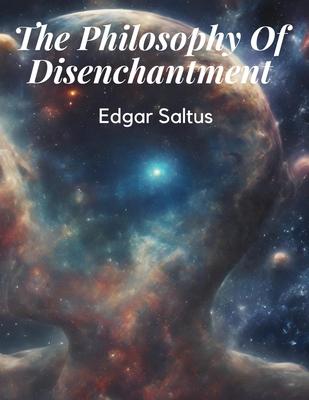"The Philosophy of Disenchantment" is a philosophical work written by Edgar Saltus, an American author known for his diverse literary output in the late 19th and early 20th centuries. The book was first published in 1885.
In "The Philosophy of Disenchantment," Saltus explores themes related to skepticism, disillusionment, and the human condition. The central premise of the book is the idea that the world is fundamentally devoid of meaning, purpose, or inherent value. Saltus argues that traditional beliefs in religion, morality, and metaphysics are illusory constructs that have been created by human beings in an attempt to find meaning and order in an otherwise chaotic and indifferent universe.
Drawing on philosophical ideas from thinkers such as Friedrich Nietzsche, Arthur Schopenhauer, and others, Saltus presents a critique of conventional wisdom and challenges readers to confront the harsh realities of existence. He explores topics such as the nature of truth, the limits of knowledge, the problem of evil, and the existential struggle for meaning in a world devoid of inherent purpose.
Saltus’s writing style is characterized by its boldness, wit, and intellectual rigor. He employs vivid imagery, sharp wit, and provocative language to engage readers and challenge their preconceptions about the nature of reality and the human condition.
Although "The Philosophy of Disenchantment" was not widely recognized during Saltus’s lifetime, it has since gained attention for its bold and provocative ideas. The book remains relevant today for its exploration of existential themes and its critique of traditional beliefs, making it a valuable contribution to the philosophical discourse on the nature of reality and the human experience.












